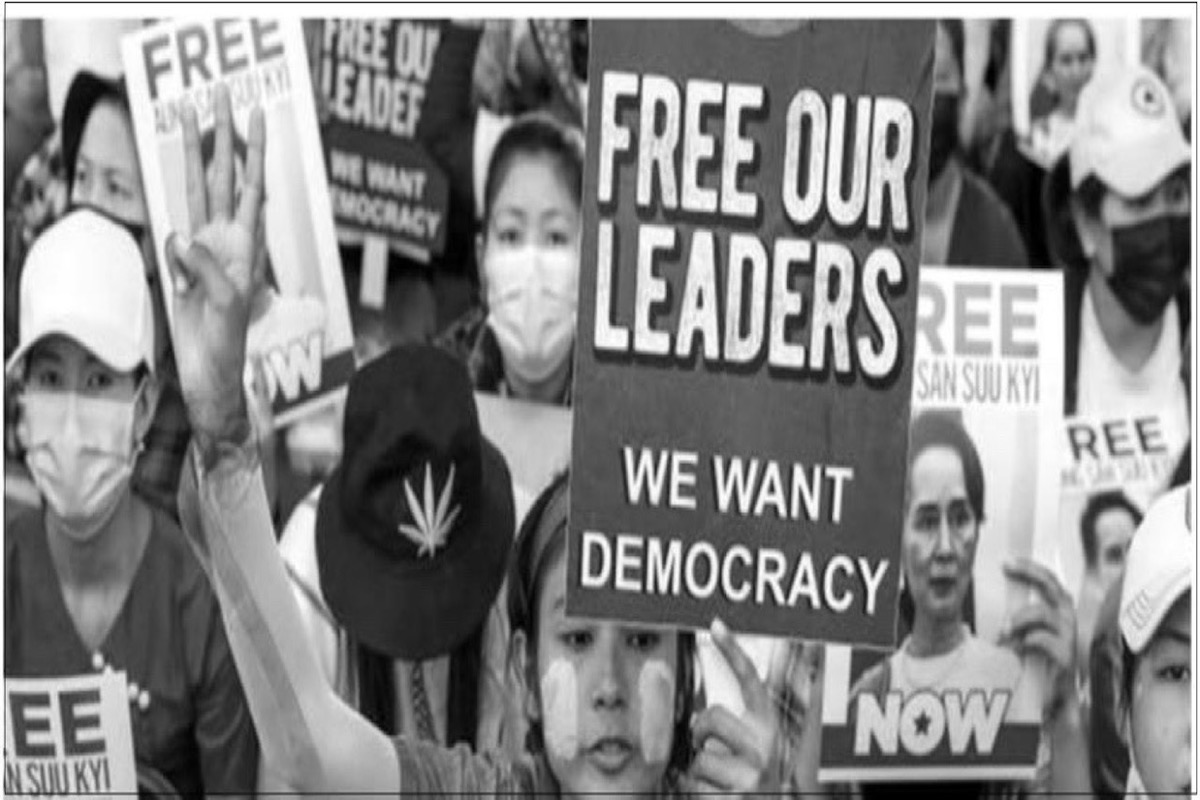Election Farce
Four years after seizing power in a coup, Myanmar’s military rulers continue their desperate yet failing bid to tighten their grip, this time by extending emergency rule under the pretext of preparing for elections.
Myanmar has been rocked by almost daily protests since the coup and the military has intensified its attempts to crush dissent, though the UN and Western countries have condemned their takeover and the escalating violence.

While the Association of South East Asian Nations (Asean) is yet to execute its pledge against Myanmar, the European Union has spelt out its plan of action in less than three months of the 1 February coup, reaffirming in the process that it remains a united entity.
On Tuesday, it announced the toughest measures yet against the military that has cracked down on the people’s upheaval with brutal severity. Very legitimately, the protesters are shrilling for the return of the elected government.
Advertisement
The protest is concordant with the certitudes of democracy. There has been an outcry in Myanmar as the military aired images of ‘tortured’ detainees. The sanctions include freezes on assets and a ban on visas; the cache of curbs will affect ten military figures as well as two giant conglomerates.
Advertisement
According to the EU member states, the individuals were “all responsible for undermining democracy and the rule of law in Myanmar and for repressive decisions and serious human rights violations”.
On closer reflection, democracy has been undermined since the early 1990s; stability remains a scarce commodity, one that has eluded the country for three decades. The indictment this time is severe and it shall not be easy for the cantonment to shore up its image.
The army has brought Myanmar to the brink. While the EU has struck hard, diplomatic sensitivities hinder a suitably robust response on the part of the United Nations, almost reminiscent of its masterly inactivity and dithering in Libya and Syria. Myanmar’s State Administration Council (SAC), set up by the military the day after it seized power, was “responsible for undermining democracy and the rule of law”, the EU said in its official journal.
“The military forces and authorities operating under the control of the SAC have committed serious human rights violations since February 1, 2021, killing civilian and unarmed protesters,” the EU said. Nine of those singled out are members of the State Administration Council Also sanctioned was the Information Minister, U Chit Naing.
Myanmar has been rocked by almost daily protests since the coup and the military has intensified its attempts to crush dissent, though the UN and Western countries have condemned their takeover and the escalating violence. Thousands have been arrested since the coup and at least 738 civilians have been killed, according to the human rights group, Assistance Association for Political Prisoners, which is monitoring the situation.
More than 4,000 people have been arrested and 3,261 remain in detention, according to the group, which the military has accused of spreading ‘fake news’. There is a bubble of untruth floated by the military as well. And the coup is integral to that bubble.
Advertisement